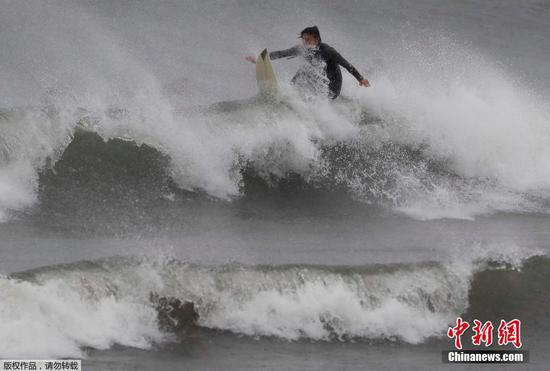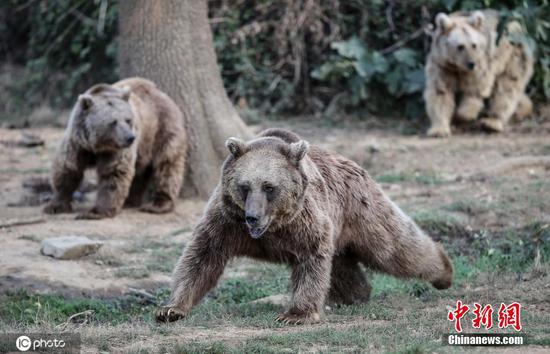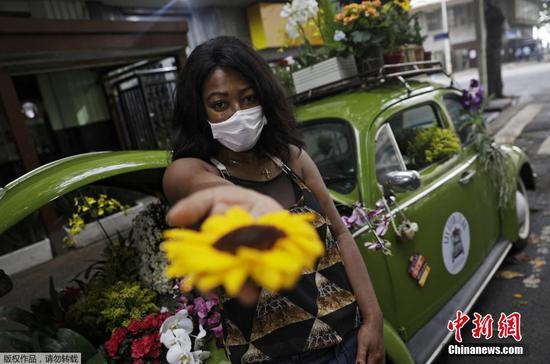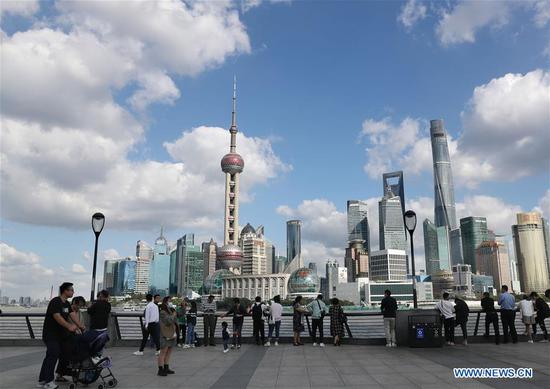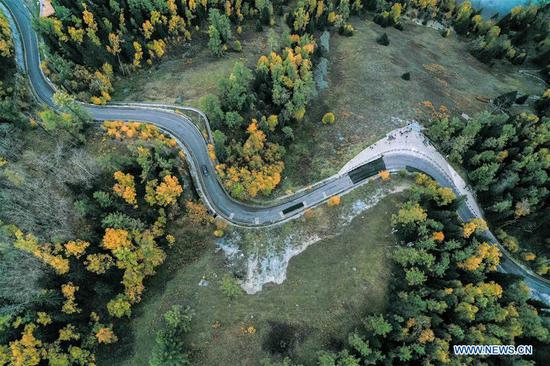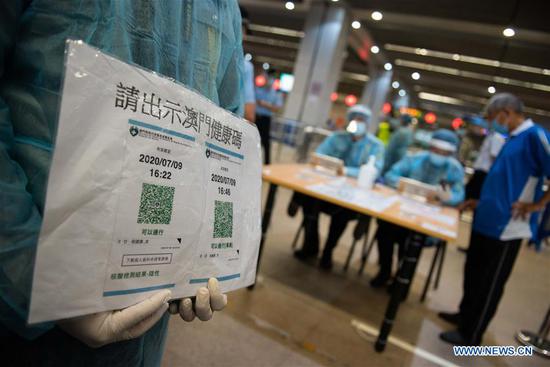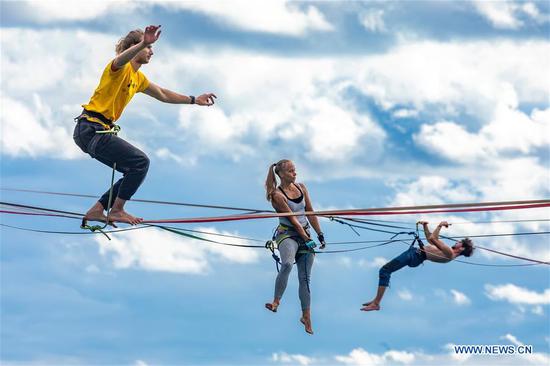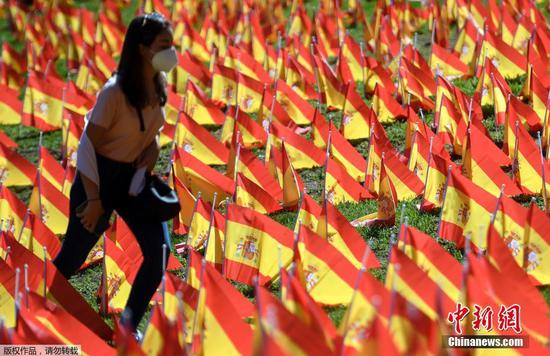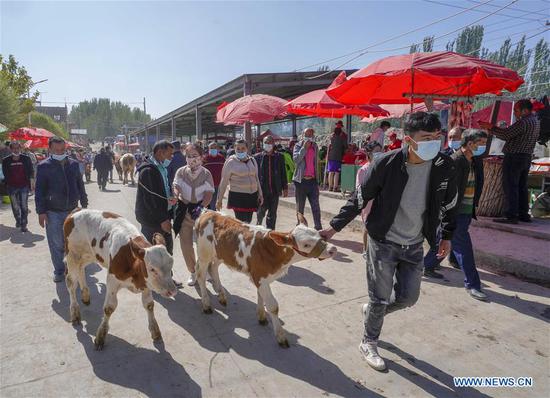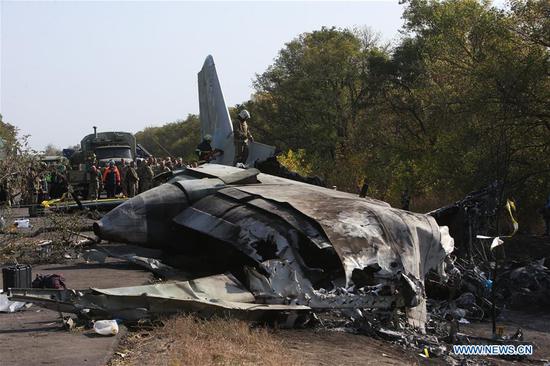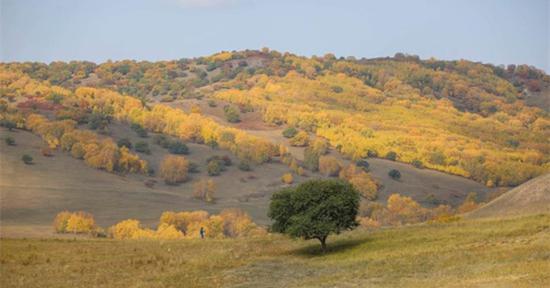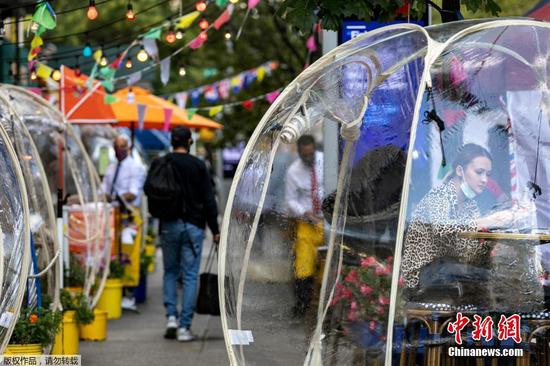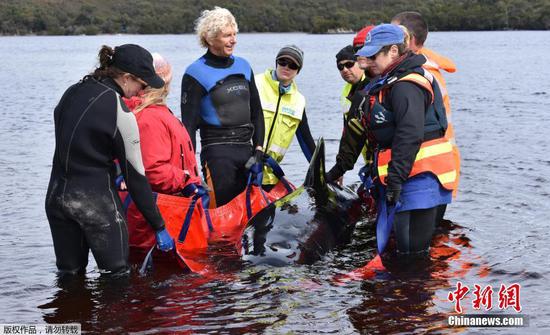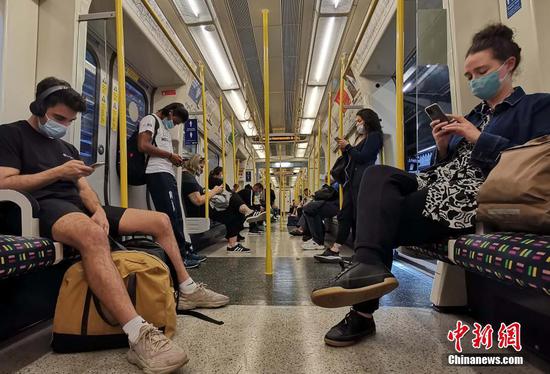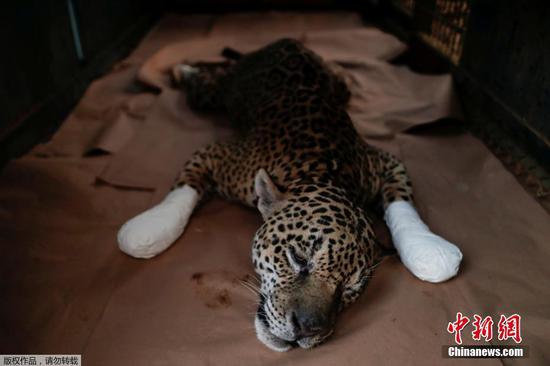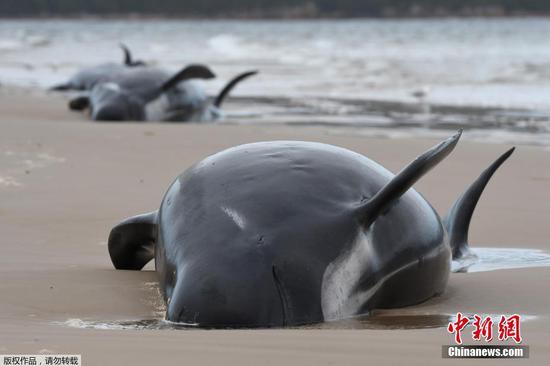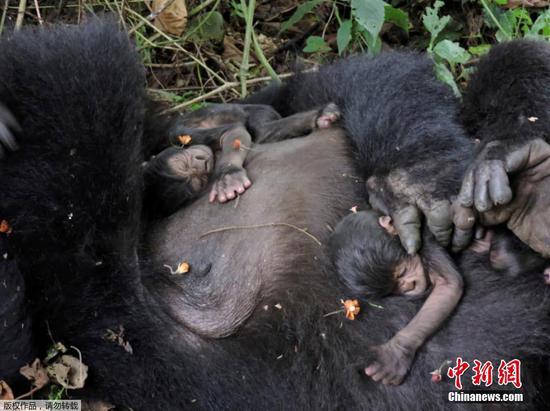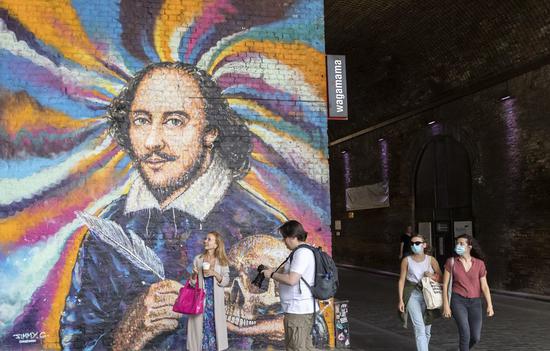
People wearing face masks walk by a mural in London, Britain, on Aug. 1, 2020. (Xinhua/Han Yan)
Another 12,872 people in Britain have tested positive for COVID-19, bringing the total number of coronavirus cases in the country to 603,716, according to official figures released Sunday.
The coronavirus-related deaths rose by 65 to 42,825, the latest data showed.
Earlier Sunday, Peter Horby, chair of the New and Emerging Respiratory Virus Threats Advisory Group (Nervtag) and a British government adviser, warned that a second national coronavirus lockdown is a possibility in the face of a worsening situation of the coronavirus pandemic.
Horby said during the BBC's Andrew Marr Show program that Britain was at a "precarious point" and the "critical mission" now was to protect the National Health Service (NHS) from being overwhelmed.
Meanwhile, Jonathan Van-Tam, England's deputy chief medical officer, also warned that Britain has reached a "tipping point" in its epidemic, similar to that seen in March.
At present, Britain's coronavirus reproduction number, also known as the R number, is between 1.2 and 1.5, slightly down from between 1.3 and 1.6 last week, the British government's Scientific Advisory Group for Emergencies (SAGE) has said.
The R number, which means the average number of people each person with coronavirus goes on to infect, is one of the major indicators scientists use to determine how fast COVID-19 is spreading.
If the R number is above one, it means the number of cases will increase exponentially.
British Prime Minister Boris Johnson is expected to outline a new three-tiered system of coronavirus restrictions on Monday as new COVID-19 cases continue to rise in the country, local media reported.
Johnson will reveal the full details of the much-anticipated approach in a statement to the House of Commons, or the lower house of the British parliament, according to the London-based Evening Standard newspaper.
The three tiers, known as Local COVID Alert Levels, are expected to be medium, high and very high. Under a very high alert, pubs and bars would have to shut, but not restaurants.
To bring life back to normal, countries, such as Britain, China, Russia and the United States, are racing against time to develop coronavirus vaccines.










